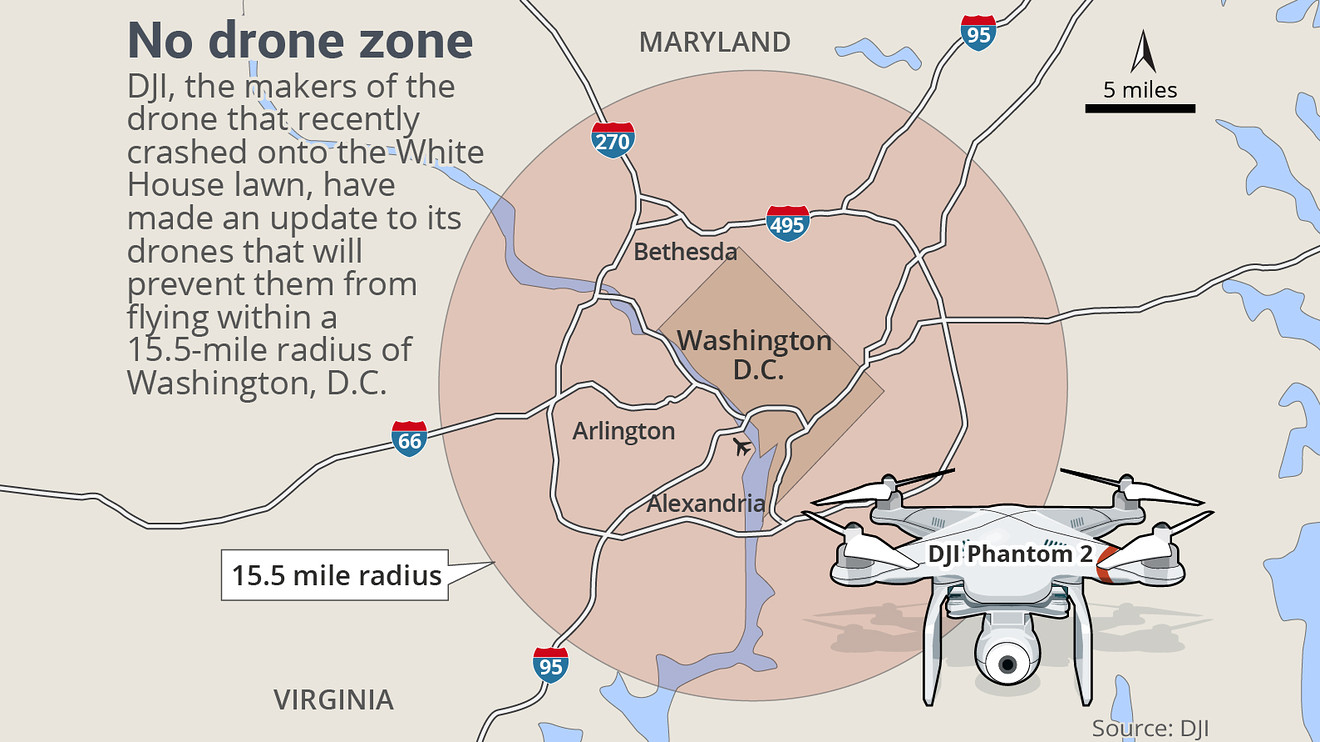How Do You Fly Drones in DC Airspace?
Plan way ahead!
Local, state, and federal governments have committed to renewable energy in their policies and procurements. Drones are becoming a big part of their strategy because they save up to 90% of time onsite and are safer than manual survey methods. Yet, there are certain areas where getting permission to fly a drone is complicated, such as around government buildings, military bases, and right next to airports. While these more nuanced airspaces exist throughout the United States, you can navigate them through the LAANC process. However, no airspace poses a bigger challenge than trying to fly drones around Washington, DC. It is possible, but difficult - here’s what you can do.
Flying in DC starts with Government Permission
First things first: All drone flights are guided by the TSA regulations on Unmanned Aircraft Systems (UAS). You can fly a drone in the DC area, if you have government sponsorship for your project and permission to fly. But you need to know three critical things.
1. You can’t fly in the no-drone zone
Ever since a drone crashed on the White House lawn in 2015, a 7-mile radius around DC got set up and deemed a “no drone zone.” Generally speaking, there is no way to fly a commercial drone in this airspace, regardless of permission or type of project. Simply stated, a commercial or hobby drone will not be allowed to take off in this airspace.

FAA No Drone Zone image around DC showing the overlay of the restricted airspace area.
2. Every trip must have a government purpose
To fly a drone within the 7-mile radius, you need special government approval. All drone work inside this radius must be on behalf of a government agency or endorsed by a government agency (local, state, or federal level). Due to this fact, it’s functionally not possible for a purely commercial drone flight to be approved without permission.
3. Every trip has its own permission
Permissions to fly drones are specifically allocated to a drone, a pilot, a date, and a location. That means if your project requires multiple drone flights or uses multiple drones, each instance will need to go through an application and permission approval process. There is no long-term, blanket project permission available.
Need a minimum of 2 people
Considerations for flying a drone in DC
If you have a government project (or a commercial project with government portions) and want to fly a drone in DC airspace, here’s what you need to know:
REQUIREMENT: Minimum of two people.
REQUIREMENT: Local/State endorsements
REQUIREMENT: Police escort. Once you have permission, you will need a police escort for the drone flight itself. That usually costs around $300: the officer costs $100 per hour and typically requires a 3 hour minimum.
-
Timeline: In general, you should give yourself just over a month to go from starting the process to completing your drone flight. The TSA requires a minimum of 10 business days to process your application for a drone flight, and 3-5 additional business days to organize a police escort.
-
Done-for-you services: While the TSA process is relatively straightforward, getting government sponsorship is a much trickier process. If you don’t have government relationships to “endorse” your project, we recommend working with a drone pilot services company in the area who can help. We’ve worked with Hover Solutions, who is incredibly professional and very well versed in flying a variety of sites and industries in and around DC. While these services can be more expensive than a typical drone survey outside of DC, they are worth it versus applying for sponsorship and navigating the different rules and organizations yourself.
-
TSA requirements: In order to get approval from the TSA, here’s what you need to have in place (based on their UAS requirements):
Application Letter: Detailing your ask to fly (and why).
Remote Pilot Certification: This is your Part 107 license.
Application Map: Showing precisely where you want to fly.
Responsible Party Information: Who will be with the drone.
UAS Operations Information: Details about your drone.
You’ll then have a multi-page list of requirements for pre- and during-flight operations (including things like a police escort).
Making DC work with drones is a long shot
It’s worth noting that even if you follow all these items perfectly, it’s unfortunately still a long shot to get a license to fly within the no drone zone (or even in the general DC area). Given DC’s global importance, it’s a highly secure region of the world. That unfortunately makes it harder for innovators to use drones for legitimate purposes. If you’re working on a project that requires aerial images of DC airspace, there is a way to get government sponsorship and permission to fly a drone. It’s lengthy, but possible. Working with an organization like Hover can help streamline the process as well, but there are no guarantees. Sometimes, it’s just not going to happen.
Updated about 15 hours ago